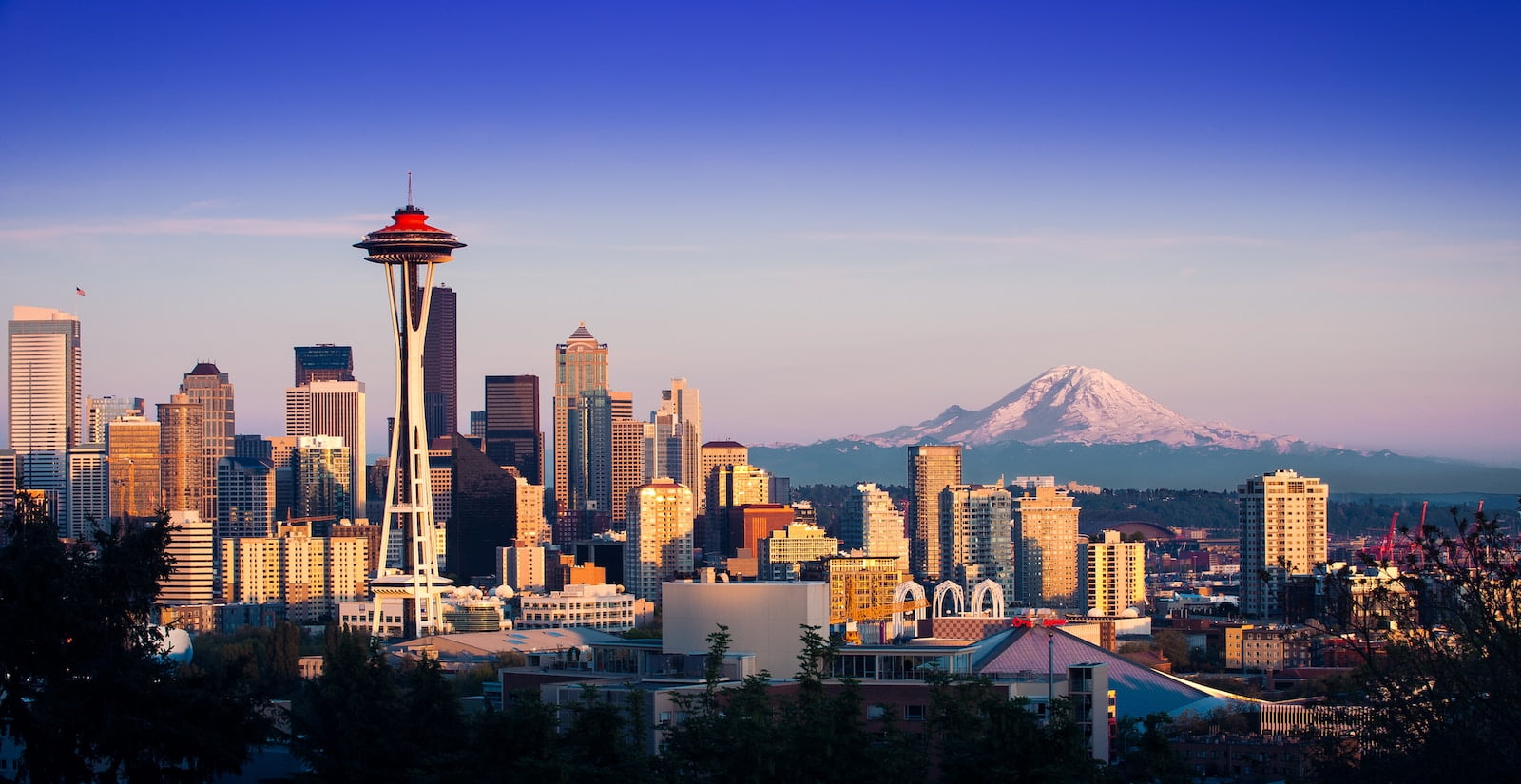Seattle, known as the Emerald City, is a growing metropolis that stands out for its commitment to sustainable development and innovation. Seattle is located in the Pacific Northwest region of the United States and has a population of over 750,000 people. It is home to some of the world’s top technology companies, such as Amazon, Microsoft, and Starbucks. However, the city’s appeal goes far beyond its tech sector, as Seattle also boasts a thriving arts and culture scene, a vibrant foodie culture, and stunning natural beauty.
Top Tourist Attractions in Seattle: A Comprehensive Guide(Opens in a new browser tab)
But it is not only the city’s aesthetic appeal that sets it apart – Seattle is a leader in sustainability and innovation, and this has been recognized globally. Seattle has made significant strides in reducing its carbon footprint, promoting sustainable transportation, and fostering a culture of sustainability through education and engagement.
Sustainability in Seattle
Seattle has a robust sustainability plan that aims to make the city carbon neutral by 2050. The city has set ambitious goals to reduce greenhouse gas emissions and promote renewable energy. The Seattle Climate Action Plan outlines a wide range of strategies to achieve these goals, from reducing energy consumption in buildings to promoting low-emissions public transit.
Seattle is working on a range of initiatives to reduce its carbon footprint. For instance, the city is promoting renewable energy through its Municipal Energy Utility and is working to electrify its fleet of vehicles. Additionally, the city is encouraging the development of green infrastructure, such as rain gardens and permeable pavement, to reduce the amount of pollution that enters local waterways.
Discover the Top Foodie Destinations in the USA: A Comprehensive Guide(Opens in a new browser tab)
Transportation in Seattle
Seattle is a leader in promoting sustainable transportation. The city has an extensive public transportation system that includes buses, light rail, and ferries. The city has also implemented a bike-sharing program, providing residents and tourists with an affordable and environmentally friendly way to get around the city.
Seattle is committed to developing a more sustainable transportation system by investing in innovative technologies. For instance, Seattle has implemented an electric trolley bus system and is working on a new light rail system that will connect the city with nearby suburbs. Additionally, the city has implemented a bike share program, providing residents with an affordable and environmentally friendly alternative to driving.
The Revitalization of Detroit: A Story of Resilience and Renewal(Opens in a new browser tab)

Innovation in Seattle
Seattle is a hub for innovation and has a thriving tech sector that has spawned some of the most prominent tech companies globally. Beyond the tech sector, Seattle is a hotbed of innovation, with entrepreneurs and startups creating new businesses and driving technological advancements in a range of industries.
One area where Seattle is leading the way in innovation is sustainable agriculture. The city has a thriving rooftop gardening scene and is home to innovative food production projects such as the Beacon Food Forest. This urban farming project is a 7-acre public food forest that provides free food to the community in a sustainable and inclusive way.
Top 10 Best Beaches in Texas for a Memorable Vacation Experience(Opens in a new browser tab)
FAQs
Q: What is Seattle known for?
Seattle is known for its thriving tech sector, vibrant culture, and stunning natural beauty. Seattle is home to some of the world’s biggest tech companies, such as Amazon, Microsoft, and Starbucks. The city has a vibrant arts and culture scene, with numerous museums and galleries, and a thriving music and theater culture. Seattle is also surrounded by stunning natural beauty, from the Puget Sound to the nearby mountains.
Q: What is Seattle’s sustainability plan?
Seattle’s sustainability plan aims to make the city carbon neutral by 2050. The sustainability plan includes a range of strategies to reduce greenhouse gas emissions, promote renewable energy, and encourage sustainable transportation. The plan also focuses on promoting green infrastructure and educating the public about the importance of sustainability.
Q: What initiatives has Seattle implemented to reduce its carbon footprint?
Seattle has implemented a range of initiatives to reduce its carbon footprint, including promoting renewable energy through the Municipal Energy Utility and electrifying the city’s fleet of vehicles. Additionally, the city is encouraging the development of green infrastructure, such as rain gardens and permeable pavement, to reduce the amount of pollution that enters local waterways.
Q: What sustainable transportation options are available in Seattle?
Discover the Best National Parks in Arizona – A Comprehensive Guide(Opens in a new browser tab)
Seattle has an extensive public transportation system that includes buses, light rail, and ferries. The city has also implemented a bike-sharing program, providing residents and tourists with an affordable and environmentally friendly way to get around the city. Additionally, Seattle is investing in innovative transportation technologies, such as electric trolley buses and a new light rail system.
Q: What is the Beacon Food Forest?
The Beacon Food Forest is an urban farming project in Seattle. It is a 7-acre public food forest that provides free food to the community in a sustainable and inclusive way. The project uses permaculture principles to create natural systems that are self-sustaining and ecologically responsible. The food forest includes a range of edible plants, such as fruit and nut trees, berry bushes, and vegetable gardens. It also features community gathering spaces and educational opportunities for residents.





